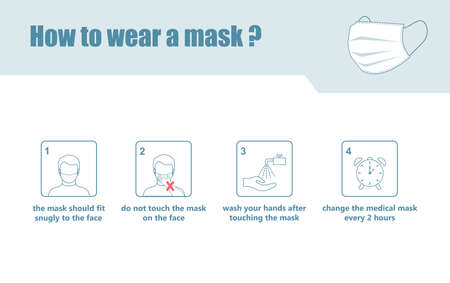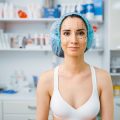1. Understanding Pregnancy-Safe Skincare
When you’re expecting, your body goes through a whirlwind of changes—including your skin. In the United States, where access to skincare products is wide and varied, it’s especially important for pregnant individuals to be aware of what goes on their faces. Many face masks found on drugstore shelves or online marketplaces contain ingredients that may not be suitable during pregnancy. Hormonal shifts can make your skin more sensitive, prone to breakouts, or even cause new issues like melasma (dark patches) or increased dryness. Because of these changes, what worked for you before pregnancy might not be the safest or most effective now. That’s why understanding which ingredients to avoid—and which ones are recommended—can help you maintain a healthy glow without worry. Being mindful of pregnancy-safe skincare isn’t just about avoiding harm; it’s also about adapting to your skin’s new needs as you go through this exciting chapter in your life.
2. Ingredients to Avoid During Pregnancy
When youre expecting, its super important to pay extra attention to the ingredients in your skincare—especially when it comes to face masks. While many products promise glowing skin, some popular actives can actually pose risks during pregnancy. Here’s a quick guide to help you spot which ingredients to skip until after your little one arrives.
Common Face Mask Ingredients to Avoid
Certain chemicals and botanicals found in face masks are best left on the shelf for now. These ingredients might be absorbed into the bloodstream or cause irritation, making them less than ideal while you’re pregnant. Here’s a helpful table breaking down the main culprits:
| Ingredient | Why Avoid? | Commonly Found In |
|---|---|---|
| Retinoids (Retinol, Retin-A, Tretinoin) | Linked to birth defects; high absorption rate | Anti-aging masks, brightening treatments |
| Salicylic Acid (high concentrations) | Associated with pregnancy complications in high doses | Acne masks, exfoliating peels |
| Benzoyl Peroxide | Potential risk if overused; limited safety data | Acne treatment masks |
| Essential Oils (e.g., rosemary, clary sage) | Some can trigger contractions or allergic reactions | Aromatherapy masks, “natural” formulas |
| Hydroquinone | High absorption; potential toxicity concerns | Brightening and spot-correcting masks |
A Few More Watch-Outs
If you see labels like “deep cleansing,” “anti-aging,” or “peel-off,” make sure to double-check the ingredient list. Even natural-sounding options can sneak in problematic oils or acids not considered pregnancy-safe.
Pro Tip: Always Patch Test!
Your skin can become extra sensitive during pregnancy—even to ingredients you’ve used before. When trying any new mask, do a small patch test first and check with your OB-GYN if you’re unsure about an ingredient.
![]()
3. Pregnancy-Friendly Ingredients and Benefits
When you’re expecting, your skin deserves extra love and care—and choosing the right face mask ingredients is key! Many American moms-to-be notice changes in their skin, such as dryness, sensitivity, or unexpected breakouts. Luckily, there are gentle, effective ingredients that cater to most skin types and concerns during pregnancy. Here’s what to look for:
Hyaluronic Acid: Deep Hydration Hero
Hyaluronic acid is a superstar ingredient, loved for its powerful ability to hydrate without clogging pores. It helps plump up skin and reduce dryness, which many pregnant women experience due to hormonal shifts. Plus, it’s lightweight and works well with all skin types—so it’s perfect if you’re dealing with unpredictable skin changes.
Glycerin: Gentle Moisture Boost
Glycerin is another safe and reliable choice for pregnant women. This ingredient attracts moisture from the air into your skin, leaving it soft, smooth, and supple. It also creates a protective barrier that helps lock in hydration—a must for anyone combating flaky or irritated skin during pregnancy.
Oatmeal: Soothing Sensitive Skin
If your skin feels itchy or inflamed (which is common during pregnancy), oatmeal is a go-to natural remedy. Colloidal oatmeal calms irritation and reduces redness while providing a gentle exfoliation. It’s especially helpful for American women with sensitive or allergy-prone skin looking for relief without harsh chemicals.
Aloe Vera: Nature’s Calming Gel
Aloe vera is famous for its soothing properties. Whether you’re battling mild breakouts or just need some cooling comfort after a long day, aloe helps calm the skin and supports natural healing. Its gentle touch makes it ideal for daily use in face masks throughout your pregnancy journey.
Why These Ingredients Work for Most Skin Types
The beauty of these ingredients is their versatility—they address a range of concerns like dryness, irritation, and uneven texture while staying gentle enough for sensitive pregnancy skin. They also fit well with the diverse needs of American women, whether your complexion is oily, dry, combination, or somewhere in between.
Pro Tip:
Always patch test new products first and consult with your healthcare provider if you have specific concerns about allergies or sensitivities during pregnancy!
4. Choosing the Right Face Mask: US Drugstore and Clean Beauty Options
Shopping for pregnancy-safe face masks in the US can feel overwhelming, especially with so many products on the shelves. But don’t worry! Here’s how to confidently pick a face mask at popular American retailers while ensuring both safety and effectiveness.
Tips for Shopping at Popular US Retailers
Whether you’re browsing the aisles at Target, Walgreens, Ulta, or Whole Foods, it helps to know what to look for and which brands are trusted for expecting moms. Here’s a quick guide:
| Retailer | Trusted Brands | Key Labels/Claims |
|---|---|---|
| Target | Burt’s Bees, Pacifica, Honest Beauty | “Fragrance-Free,” “Dermatologist-Tested,” “Hypoallergenic” |
| Walgreens | CeraVe, Aveeno, La Roche-Posay (look for sensitive skin lines) | “Non-Comedogenic,” “Sensitive Skin Approved” |
| Ulta | Acure, Yes To, SheaMoisture (clean beauty section) | “Clean Beauty,” “No Parabens/Sulfates/Phthalates” |
| Whole Foods | Andalou Naturals, Mad Hippie, Evanhealy | “Organic,” “EWG Verified,” “Vegan” |
What Labels & Claims Mean in America
Fragrance-Free: Best choice for avoiding irritation during pregnancy.
Dermatologist-Tested/Hypoallergenic: Indicates extra care for sensitive skin.
Non-Comedogenic: Won’t clog pores—ideal if pregnancy hormones are causing breakouts.
No Parabens/Sulfates/Phthalates: Avoids common chemicals you don’t want while pregnant.
Clean Beauty: Indicates fewer synthetic ingredients and safer formulas—great for peace of mind.
EWG Verified: Means the product meets strict health standards set by the Environmental Working Group.
Bonus Shopping Tips!
- Check the ingredient list: Even if a product claims “natural,” double-check that it doesn’t include retinoids or salicylic acid over 2%.
- Avoid single-use sheet masks with heavy fragrance or unknown additives.
- If shopping online, use filters like “pregnancy-safe” or “for sensitive skin.”
- If you’re unsure, ask pharmacists or beauty advisors—they often know which products are safest for moms-to-be!
With these tips, you’ll be able to navigate American drugstore and clean beauty aisles with confidence—and find a face mask that fits both your needs and your pregnancy-safe checklist!
5. DIY and Natural Alternatives
When you’re pregnant, it’s totally normal to want to keep things as natural and gentle as possible—especially when it comes to your skincare routine! Luckily, there are plenty of easy, pregnancy-safe face mask ideas you can whip up in your own kitchen using ingredients commonly found in US households. These homemade options not only help you avoid harsh chemicals but also let you control exactly what goes on your skin.
Oatmeal & Yogurt Soothing Mask
Oatmeal is a classic for calming irritated or sensitive skin, while plain yogurt brings gentle exfoliation and moisture. To make this mask, simply mix 2 tablespoons of plain, unsweetened yogurt with 1 tablespoon of finely ground oats. Spread it over your clean face, leave it on for 10-15 minutes, then rinse off with lukewarm water. Both ingredients are safe during pregnancy and widely available at any American grocery store.
Avocado & Honey Hydrating Mask
If your skin feels dry or tight (which is common during pregnancy), try mashing half an avocado with 1 teaspoon of honey. Avocado is loaded with healthy fats and vitamins, while honey acts as a natural humectant that helps lock in moisture. Apply the mixture to your face for 10-15 minutes before rinsing gently. Just be sure to use pasteurized honey, which is considered safe for pregnant women in the US.
Cucumber & Aloe Cooling Mask
For a refreshing pick-me-up, blend a few slices of cucumber with 2 tablespoons of pure aloe vera gel (look for one without added chemicals). This combo soothes redness and hydrates tired skin—perfect after a long day. Both ingredients are pregnancy-friendly and super easy to find at most supermarkets.
Safety Tips for DIY Masks During Pregnancy
Always patch-test new ingredients on a small area of skin first—pregnancy hormones can make your skin more sensitive than usual. Stick to simple recipes and avoid essential oils, raw eggs, unpasteurized dairy, or anything you wouldn’t feel comfortable eating while pregnant. And if you have any specific health concerns or allergies, check with your OB-GYN or dermatologist before trying new homemade skincare treatments. With these easy kitchen recipes, you can pamper yourself safely and naturally right at home!
6. Consulting Your OB-GYN or Dermatologist
Even with all the info out there about pregnancy-safe face masks, nothing beats getting advice directly from your healthcare provider. Before trying any new skincare product—especially during pregnancy—it’s important to run it by your OB-GYN or dermatologist. Why? Because every pregnancy is unique, and your doctor knows your medical history and what’s best for you and your baby.
Typical U.S. clinical advice often emphasizes avoiding ingredients like retinoids, salicylic acid, and strong chemical exfoliants, but some women may have specific allergies or sensitivities that aren’t on generic “avoid” lists. Plus, if you have any underlying skin conditions (like eczema or rosacea), your dermatologist can help you choose a gentle mask that won’t trigger a flare-up.
If you’re ever unsure about an ingredient or a trending product—whether it’s a drugstore find or a luxe brand—just snap a picture of the label and bring it to your next appointment. Many U.S. clinics encourage open communication about over-the-counter products, and your care team will appreciate you taking the extra step to stay safe.
Bottom line: while online guides and ingredient checklists are super helpful, they don’t replace personalized medical advice. Partnering with your healthcare provider is the gold standard for protecting both your skin and your pregnancy journey.


